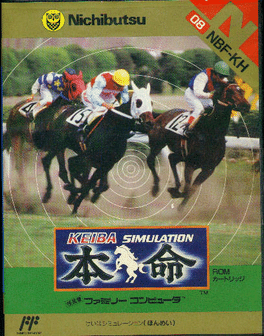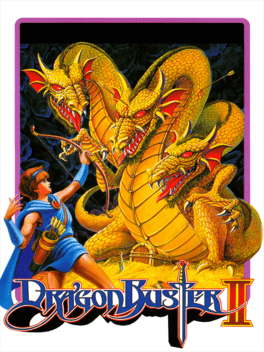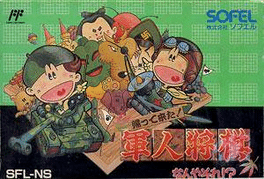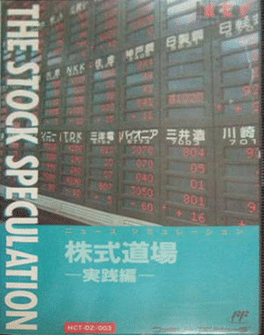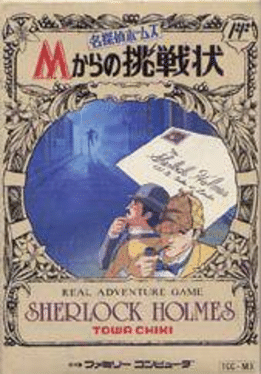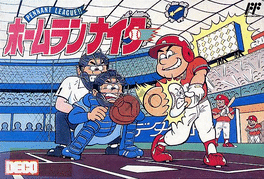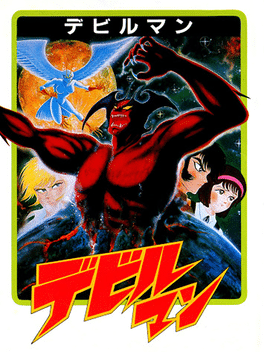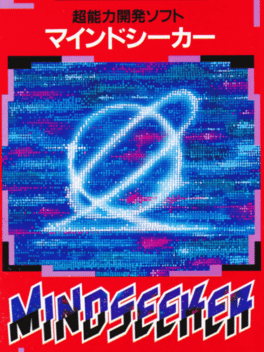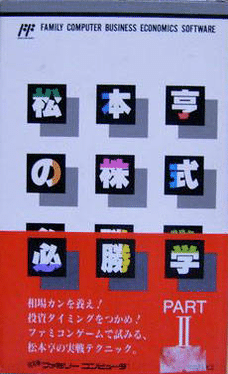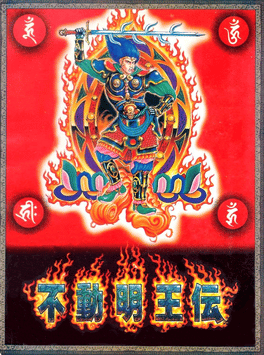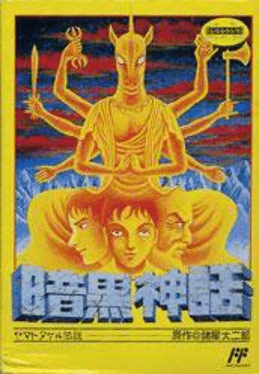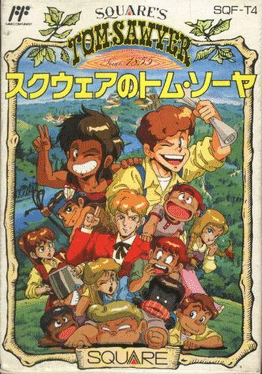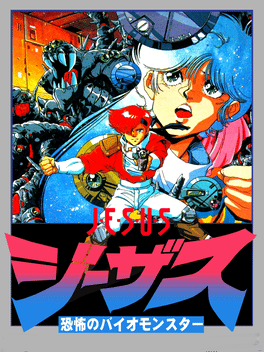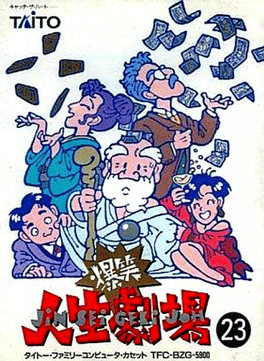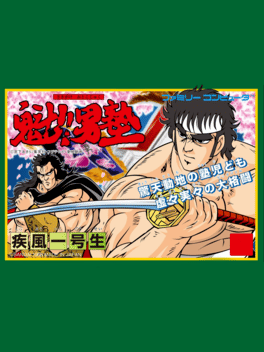New Family Computer Games - Page 33
-
Keiba Simulation: Honmei
1989
A horse racing simulation game from Nichibutsu, developed for the NES in Japan only. Keiba Simulation: Honmei ("keiba" is the Japanese word for horse-racing, and "honmei" is a term meaning a favorite to win) is a Famicom horse-racing simulation game from Nichibutsu, often known as Nihon Bussan. In fact, the box art states the former as developer and the title screen states the latter. As a true simulation game, there is no racing (at least that the player can control) or gambling. The player instead can fiddle with the parameters for each race and the horses competing, changing their stats such as fatigue, age and the weight of the jockey. Then players can watch a race with these settings play out and observe the winner. It is possible the goal of this game is to recreate the likely output of an actual race based on as much information as the player is able to muster in order to assist them with their gambling, though its more likely the game is for racing enthusiasts. -
Dragon Buster II: Yami no Fuuin
1989
Centuries ago, Dragons and Demons roamed the country and brought terror into the lives of all people. However, a local legend states that the Sword of Thruth can restore peace to the land. It turns out that the almighty weapon is kept by the most ferocious dragon who ever lived but this doesn't stop the young Carl from willing to take on the challenge. He is small but the best archer the land has ever seen! -
Kaettekita! Gunjin Shogi: Nanya Sore!?
1989
Kaettekita! Gunjin Shogi: Nanya Sore!? is a shogi game that uses the gunjin shogi, or military shogi, variant of the classic eastern chess-like board game. The player starts by selecting one of five opponents: A pumpkin-headed ghost, a werewolf Al Capone, an alien, Adolf Hitler or a sumo wrestler. The player is then given an assortment of pieces while the opponent appears to have the same number of instances of the same piece, though in truth their real forms are concealed from the human player. The player must use their wits to defeat the enemy's force of shogi pieces, which have different themes depending on the opponent the player has chosen (for instance, when fighting the pumpkin ghost both sides have vegetable-themed pieces). -
Tenchi wo Kurau
1989
-
The Stock Speculation
1989
A stock market simulation game from Hect for the NES. Like most, but not all, NES stock market simulators it was never released outside of Japan. Kabushiki Doujou: The Stock Speculation ("Kabushiki" is the Japanese stock market, and "doujou" is, of course, dojo) is a stock trading simulation game, where the aim is to invest wisely in the stock market and develop a bountiful portfolio. The player is given regular money goals to reach before the next target is due and can buy, sell and manage their stocks to achieve as much wealth as possible. The game uses a lot of public domain classical music, such as the title screen's 8-bit rendition of Bach's Air on a G String. -
Meitantei Holmes: M kara no Chousenjou
1989
The third of three NES Sherlock Holmes adventure games from Towa Chiki and Another. M-Kara no Chousenjou is the third in Another/Towa Chiki's series of adventure games for the Famicom that star Sir Arthur Conan Doyle's famous sleuth, Sherlock Holmes. It follows Sherlock Holmes: Hakushaku Reijou Yuukai Jiken and Meitantei Holmes: Kiri no London Satsujin Jiken. As with the second of those games, M-Kara no Chousenjou has the player navigate a menu to talk to NPCs and witnesses, investigate areas of interest, find and pick up evidence and walk to various locations across Victorian-era London and other cities. -
Home Run Nighter: Pennant League!!
1989
Home Run Nighter: Pennant League!! is a Sports game, developed and published by Data East, which was released in Japan in 1989. -
Holy Diver
1989
-
Devilman
1989
Devilman
1989
Devilman is a side scrolling platform action/adventure game based on Go Nagai's Devilman. -
Mindseeker
1989
Mindseeker
1989
Mindseeker is an Adventure game, developed and published by Namco, which was released in Japan in 1989. -
A Week of Garfield: Garfield no Isshukan
1989
A Week of Garfield is a 1989 Family Computer title based on the comic character Garfield. It was only released in Japan due to issues with using the Garfield license in North America and Europe. It is the third video game to be based on Jim Davis' Garfield Comics The game is a sidescrolling action game in which enemies can be mice, spiders, birds and other assorted animals. Garfield's default attack is a low judo-style kick when he is standing on his hind feet. There are also several powerups that are limited to how many Garfield has the ability to pick up. A time limit prevents players from wandering aimlessly throughout the level looking for power-ups. -
Matsumoto Toru no Kabushiki Hisshougaku II
1989
A stock-trading simulation game for the NES and the sequel to Matsumoto Tooru no Kabushiki Hisshou Gaku. Matsumoto Tooru no Kabushiki Hisshou Gaku 2 is the sequel to the original Matsumoto Tooru no Kabushiki Hisshou Gaku and like that game is a stock trading simulator akin to something like Wall Street Kid. The player needs to keep track of which stocks are rising and falling, identify trends and invest wisely to ensure a wealthy and happy life. -
After Burner
1989
-
Fudou Myouou Den
1989
Fudou Myouou Den
1989
In a land of impossible evils... all paths lead to the Dark Lord! A beautiful princess cries out in terror, and a world despairs in darkness. Only you, the hero warrior Victar, can traverse chasms of fire and mountains of doom to battle the fiendish gatekeeper and confront the Dark Lord. In your cunning and skillful hands, the Demon Sword grows with a magical power more lethal than all the wretched weapons of the Dark Lord's legions. Gather your courage, grasp your blade and release the power that is yours to control! -
JaJaMaru Ninpouchou
1989
JaJaMaru Ninpouchou
1989
"JaJaMaru Ninpouchou" is a ninja themed role-playing game. Play as Jajamaru and Princess Sakura as you explore around a world map visiting towns and dungeons. Fight against random encounters using the separate turn-based combat screen. -
Ankoku Shinwa: Yamato Takeru Densetsu
1989
The game is based on old Japanese legends about Yamato Takeru, a legendary hero of ancient Japan. The game starts when Yamato Takeru is a thirteen-year-old boy. His father was killed under mysterious circumstances. Searching his things, the boy found a postcard that gave him his first clue for the investigation. From that moment, his adventure begins. -
Square's Tom Sawyer
1989
Square's Tom Sawyer
1989
Square's Tom Sawyer is a role-playing game based on Mark Twain's novel, The Adventures of Tom Sawyer. It lets players assume control of Tom Sawyer and his companions as they search for Injun Joe's treasure. -
JESUS: Kyoufu no Bio Monster
1989
JESUS: Kyoufu no Bio Monster is a port of the popular computer game Jesus for Famicom. Some changes were made to the story development and dialogue (for example, the partner you act with in the latter half of the story can be chosen in the PC version, but in the Famicom version it is fixed to Elline), and some adult-oriented graphics and scenes were changed or removed due to the age group of Famicom users. -
Bakushou!! Jinsei Gekijoh
1989
The first game in the Bakushou!! Jinsei Gekijoh series and is a four-player NES board game simulation that plays like Milton Bradley's The Game of Life. It was only released in Japan on March 17th 1989. Bakushou!! Jinsei Gekijoh ("Burst of Laughter!! Theater of Life") is the first game in a long-running series developed and published by Taito for the Nintendo Entertainment System in Japan that allows players to live an entire lifetime, moving through various stages of life and accruing as much wealth as possible. It is based on the Jinsei Game, or The Game of Life as it is known in the west. Up to four human players take turns moving around a board by a number of squares as indicated by dice rolls and make various life decisions, or are passively shown events happening to them, which determine their success. The game was followed by two sequels for the NES and four for the SNES. -
Sakigake!! Otokojuku: Shippuu Ichi Gou Sei
1989
Sakigake takes place at a school called Otokojuku, which is a private boy school that teaches Oendan to student delinquents. Oendan is basically a cheering squad that is somewhat similar to cheerleaders, except they focus mostly on noise and atmosphere than being acrobatic. The school is run by the principal Heihachi Edajima, who uses martial arts to train his students to be better people for society.
